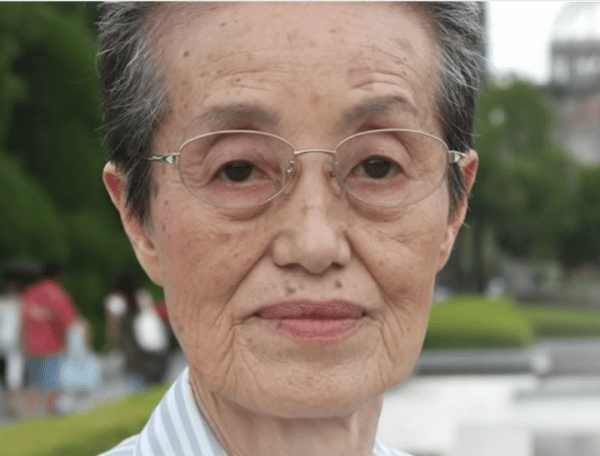
‘I was in the midst of the bright, bright light. I felt as if the sun dropped on me. Then the blast, strong blast attacked me.’
By 1945, even the children living in the Japanese city of Hiroshima knew an attack was coming. No-one had any idea how devastating it would be but they were bracing for it. Fourteen-year-old Tomiko Matsumoto and her younger brothers wore their clothes to bed, rather than pyjamas, because there were so many air raid sirens at night.
During the day, the children were forced into work gangs, demolishing wooden houses in the city centre, to make fire breaks in case of a bombing. The plan was to stop the entire city catching on fire if it were hit by an airstrike. Japanese soldiers stood guard as the children used their hands to tear down the houses. Tomiko and her friends were terrified that Americans would invade their city.
"Our teacher at elementary school said Americans are like demons, shiny hair and tall noses and blue eyes, exactly like a demon. So we were so scared. We were trained with bamboo spear. We were told 'if the airplane appears, the enemy will come down with parachute, then it is your turn to kill with bamboo'. We were trained for that.
"They said 'rather than be raped by American soldiers, kill yourself. Suicide is better.' Everybody believed that.
"Every day I was shivering with fear because I could hear the sound of airplanes. Other cities had been attacked and destroyed. I thought, next time, maybe it is my city."
As the children demolished the houses, mothers of soldiers being sent to war stood on street corners. They asked passers-by to each make a single stitch with red thread on a white sash for their son, believing it was good luck.






